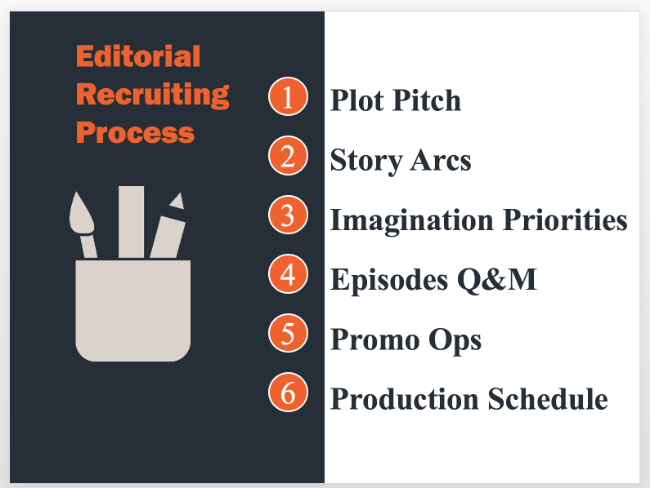 Interview marathons are a growing, but horrible, trend in hiring and recruiting. A New York Times article from March 2013 discussed how companies would interview candidates six, seven, eight times because of a cautiousness the company needs to have in making the hire and in its overall projection of the economy. Now, we're certainly not advocating that businesses rush into hiring decision or fail to consider the economy in hiring and recruiting, but there is such as a thing as being too cautious. When your company is being too cautious, like during these interview marathons, you only do harm to your employment brand, to the candidate experience, and to yourself.
Interview marathons are a growing, but horrible, trend in hiring and recruiting. A New York Times article from March 2013 discussed how companies would interview candidates six, seven, eight times because of a cautiousness the company needs to have in making the hire and in its overall projection of the economy. Now, we're certainly not advocating that businesses rush into hiring decision or fail to consider the economy in hiring and recruiting, but there is such as a thing as being too cautious. When your company is being too cautious, like during these interview marathons, you only do harm to your employment brand, to the candidate experience, and to yourself.
Do You Have the Budget for a New Hire?
If the answer is "no", then don't start the recruiting process. If you don't know if you have the budget, then don't start the recruiting process. Part of the problem with interview marathons is that these companies seem to do them to buy time in order to come up with the budget for a new hire. Don't start advertising and filling a position if you don't have the money to fill it.
In the New York Times article mentioned, video editor Paul Sullivan went through two interview marathons, showing up for his eighth- or ninth-round interviews with these companies. What did Mr. Sullivan get for all that time and effort? Nothing! Both companies that asked for so many callbacks ultimately chose not to hire anyone, putting those open positions on hold because of budget pressures.
It happens. The money to make the hire isn't there after all. But, how much time and money was wasted in figuring that out after interviewing the candidate for the ninth time? If your company can't figure this out before starting the hiring process, or is choosing to answer it somewhere during the hiring process, then your company has bigger problems than budget concerns. You also have a hiring process that will discourage candidates from accepting the offer, and that will discourage candidates from encouraging others to interview with you.
Don't Post the Job Ad Unless You're Sure about Making the Hire
Another factor in these interview marathons is the limbo that it puts candidates in, and the limbo it puts the organization itself in. A big part of this limbo is advertising the job, interviewing a few people, then realizing you can't hire anyone, so you take down the job posting. But, you really need to hire someone, so you put the position back on Indeed.com, interview people again, but ultimately decide that you're not going to hire anyone after all.
First of all, this limbo is false advertising and false advertising isn't great for any employment brand. Second, the candidate wastes time and money applying and interviewing for a position that might as well not exist. This happened to Roger Ahlfied of Mass., also mentioned in the New York Times article. He applied for a couple of jobs only to be the runner up. No one was actually hired for those positions, as almost a year later these companies are still advertising those open positions, only to take them down again and to repeat the process in a few weeks.
Think, for one second, what this does to that candidate and what may go through the candidate's head. You interview them eight times, you don't communicate with them in a few months, and then decide that you like the person so you want to extend the offer. You also have the budget this time around. But, you did give this candidate months and months of runaround. Why should the candidate believe in your promise now when all the promises up until then were empty? Why would the candidate take your job when another company offered one after just two interviews? Why would this candidate refer others to your company for open positions? After all, eight interviews can be fun for either side.
Additional Screenings and Tests Only Waste Time and Resources
We understand that most companies don't want to waste time on candidates that don't really know what they're doing or who won't fit into the company culture. That's fine, but are screenings and tests such as spelling tests, personality tests, and math tests all that necessary and helpful? In this effort to save time by weeding out the bad seeds as best you can, you weed out the good seeds by making them take a pointless test. How does a math test apply to someone who is going to spend their time working on communications? Why would a spelling test matter for an accountant? You also waste time and resources by administering pointless tests that aggravate candidates and employees because deep-down, everyone knows that they don't accomplish anything.
Overall, these interview marathons don't ensure that you find the best candidate or that you can hold out until you find the perfect person for the position. They only ensure that your recruiting process is all wrong, since it means that your goal isn't to hire the best person as quickly as possible. It means that you goal is to drag your heels and to force candidates to drag their heels with you.













